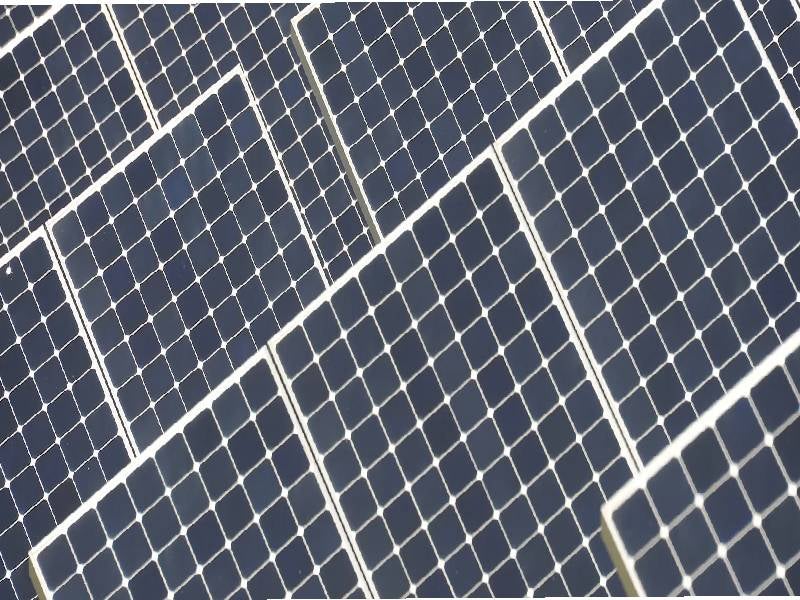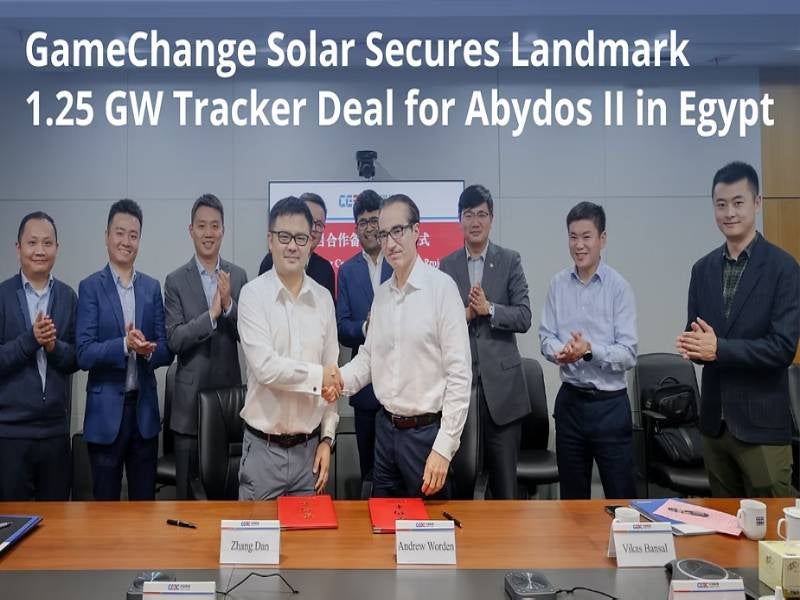Abydos Phase II is a 1GW solar photovoltaic (PV) power plant located in Egypt, featuring an integrated 600 megawatt hours (MWh) battery energy storage system (BESS).
The project is being developed by Abydos for Renewable Energy SAE, a special-purpose vehicle wholly owned by Amea Power. It is the second phase of the 500MW Abydos Phase I project, which commenced operations in December 2024.
With an estimated investment of $750m, Abydos Phase II is expected to commence commercial operations in May 2026.
It is expected to generate approximately 3,000 gigawatt hours (GWh) annually, supplying electricity to more than 500,000 households and reducing CO₂ emissions by more than one million tonnes each year.
The project represents a significant step toward Egypt’s goal of achieving 42% renewable energy generation by 2030.
Project location
The Abydos Phase II solar power plant is situated in Aswan Governorate, approximately 650km southeast of Cairo and 8.5km west of the River Nile.
The site spans approximately 20km2 of government-owned land, strategically located adjacent to the Luxor-Aswan Highway.
The area has been assigned to the New Renewable Energy Agency (NREA) for renewable energy projects since 2017.
Several other solar photovoltaic (PV) developments have already been established in the region, including ACWA Power’s 200MW Kom Ombo power project, the 26MW NREA solar PV project and the Benban solar project.
Abydos Phase II solar power plant details
The Abydos Phase II solar power plant will be divided into 144 blocks, each containing PV power arrays composed of high-efficiency n-type PV modules
GameChange Solar Genius Tracker design details
GameChange Solar’s Genius Tracker™ 1P is designed to adapt to uneven terrain, employing advanced algorithms for optimal solar energy capture throughout the day.
The tracker features a post-to-post slope tolerance of up to 1.7°, allowing for rapid installation on varied ground conditions.
The tracker’s patented SpeedClamp technology reduces installation labour by 28%, while innovative software solutions such as WeatherSmart, SmartStow and PowerBoost enhance overall energy production.
The Genius tracker is designed for a lifespan of 40 years, ensuring durability and stability even in extreme weather conditions. It is equipped with supershock dampers that ensure safe operations through high-speed hurricane-force winds.
Grid connection
The Egypt Electricity Transmission Company (EETC) is responsible for the detailed design, construction and ongoing maintenance of the project’s grid connection infrastructure.
EETC will oversee off-site connection from the onsite substation at the solar power plant to the national grid, likely using an overhead transmission line.
Financing
The International Finance Corporation (IFC) will provide a loan of up to $120m in long-term debt and up to $220m for a short-term bridge facility to the solar power plant.
IFC will also contribute up to $23.1m as the implementing entity for IFC-managed blended finance programmes. The balance of the debt, up to $480m, will be supplied by a combination of B lenders and parallel lenders.
FMO, a Dutch entrepreneurial bank, has also announced its commitment to finance the project with a loan of $100m.
Power purchase agreement
A 25-year power purchase agreement has been signed with EETC, fully guaranteed by Egypt’s Ministry of Finance.
This agreement ensures a stable revenue stream for the project, supporting its long-term viability.
Contractors involved
The engineering, procurement, and construction contract for the Abydos Phase II project was awarded to a consortium led by the China Energy Engineering Corporation (CEEC), which comprises China Energy International Group, Southwest Electric Power Design Institute and Zhejiang Thermal Power Construction.
This consortium will handle the detailed design, material supply and construction, and will operate the project for the first two years.
CEEC signed a contract with GameChange Solar to supply its Genius Tracker 1P system in July 2025.
Det Norske Veritas was appointed as the owner’s engineer to ensure the project’s compliance with safety and regulatory standards in June 2025.
JA Solar signed a module procurement agreement with CEEC to supply PV modules for the project in January 2025.
ECO Consult was also tasked with preparing the environmental and social impact assessment for the project.
The company collaborated with EcoConServ, based in Jordan, and Turnstone Ecology, based in the UK, to undertake stakeholder engagement and biodiversity assessments respectively.





